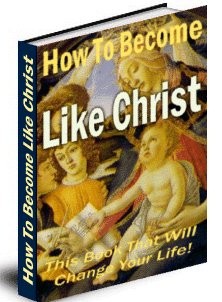
 License Type: Resell Rights
License Type: Resell Rights  File Size: 381 KB
File Size: 381 KB File Type: ZIP
File Type: ZIP
 SKU: 16201
SKU: 16201  Shipping: Online Download
Shipping: Online Download
Ebook Sample Content Preview:
There is no Scripture story better known than that of Naaman, the Syrian. It is memorable not only because artistically told, but because it is so full of human feeling and rapid incident, and so fertile in significant ideas. The little maid, whose touch set in motion this drama, is an instance of the adaptability of the Jew. Nothing seemed less likely than that this captive girl should carry with her into Syria anything of much value to anyone. Possessions she had none. Friends she might have, only if she could make them. As a captive in a foreign land she might reasonably have put aside all hope of obtaining any influence, and might naturally have sought only to benefit herself. But she was a girl with a heart. She at once took an interest in her new home, and saw with sorrowful surprise that wealth could not purchase immunity from participation in the ordinary human distresses, nor guarded gates forbid disease to pass in. Brooding from day to day over the stories she had heard of Elisha’s power, and listening to her mistress’s account of the failure of still another attempted cure, she exclaims with childlike confidence and earnestness, “Would God my lord were with the prophet that is in Samaria! then would he recover him of his leprosy.” And thus her natural interest in the troubles of other people, her cheerful and spirited acceptance of her position, and the sense that taught her to make the most of it, brought her this great opportunity of doing an important service. No one can lay the blame of his uselessness and lack of good influence on his lack of opportunity, if he is in contact with men at all, for wherever there are human beings there are sorrows to be sympathised with, wants to be relieved, characters to be fashioned.
And while this Jewish maid was utilising her captivity, her parents, if alive, would be eating their hearts out with anxiety and anguish, imagining for their daughter the worst of destinies. Instead of the horrors which usually follow such a captivity, she is cared for in a comfortable home. Little did the parents, think that there was any work to be done in Syria, which none could so well do as their little girl. The Lord had need of her, and knew that when the parents heard all they would not resent that their daughter had been thus employed. None of us see much further into the ways of Providence than those parents saw. Now, as then, those who are bound up in one another are separated, in order that ends even more important than the growth and gratification of natural affections may be attained.
Significant, also, is the dismay of Joram, King of Israel, when he received the letter bidding him find healing for Naaman. So little did he believe in Elisha’s power that he concluded the King of Syria sought to pick a quarrel with him by asking him for a favour he knew he could not grant. But while the king is helplessly tearing his clothes in a passion of despair, Elisha sends him a message which, at least for the present, gives him some calmness: “Why hast thou rent thy clothes? Let him come now to me, and he shall know that there is a prophet in Israel.” Elisha is ashamed that the King of Israel should have exhibited such weakness before a foreign potentate. He feels that the honour of Israel’s God is implicated, and boldly takes upon himself the responsibility of the cure. Bold it certainly was, and tells of a confident faith that God will be faithful to His servants. The king had no such faith. There was a power resident in Israel of which he took no account. Like many other governments, this Israelitish monarchy was unaware of its own resources, because it did not condescend to reckon what was spiritual. Frequently in civil history you find governments brought face to face with matters for which they are, with all their resources, incompetent. In modern Europe, and as much in our own country as in others, everything gives place to politics. Nothing stirs so much excitement. Differences in religion do not sever men as differences in politics do. We should, therefore, recognise what is here suggested, and should counter-balance an undue regard for political movements and political power by the remembrance that the hardest tasks of all are accomplished by quite another power, and by a power which the politician often overlooks. What have we seen time after time in our own Parliament, but the civil power rending its garments over evils which it cannot cure? Are not the remedies which have been proposed for prevalent vices absurdly incompetent? And it is the Church’s shame if she cannot step forward and confidently say, You cannot deal with such things; hand them over to me. There must always be “distempers of society” which rot the very life out of a nation, and for which legislation and criminal law are wholly inadequate. Honest-minded men who will not trifle with alarming abuses, who will not pretend they have found a remedy, must simply rend their garments in their presence. And it is well that in our day, as in others, there are men who, trusting in personal effort and Divine aid, practically say to Government, “leave these things to us.” Christian charity and practical wisdom have, in our day effected a good deal more than the healing of one leprous grandee, even if as yet the spiritual force that resides in the community is only spasmodically and partially applied to existing evil.
Elisha’s treatment of Naaman was intended to bring him into direct and conscious dependence on God; or, in other words, to produce humility and faith. Some persons are crushed and mastered by pain and sickness, and some gain in spiritual worth what they lose in physical strength. But Naaman’s disease had as yet done little to instruct him. He came as a great man, with his servants, and chariots, and piles of money, to purchase a cure from a skilled man. He did not see what Elisha plainly saw, that if this blessing came at all, it must come from Israel’s God, and that with Jehovah no man Could barter or be on bargaining terms, but must accept freely what was freely given. Therefore Elisha refuses even to see him, that Naaman might understand it was with God he had to do; and by refusing a single penny of payment he compelled the Syrian to humble himself and accept his cure as a gift.
And probably the incident finds a place in the sacred history because it marked an important step in the knowledge of God. It was an early instance of the Conquests which the God of Israel was to make among the heathen, a distinct and legible proof that whoever from among the outlying nations appealed to Him for help would receive the blessing he sought. But it was more than this, it emphasized the freeness of all God’s gifts. Nothing could be purchased from Jehovah; everything must be received as a gift. This was a new idea to the heathen, and probably to many of the Israelites also. Certainly it is an idea that is only dimly apprehended by ourselves. Our dealing with one another is to so large an extent governed by the idea that nothing can be had for nothing, that we carry this idea into our dealings with God, and expect only what we can earn and claim. It is a wholesome pride that prompts us to work at anything rather than be dependent on other men, but it is a most unwholesome and ignorant pride that forbids us to acknowledge our dependence on God, and to accept freely what He freely gives. Until we learn to live in God, to own Him as alone having life in Himself, and to accept from Him life and all that sustains it, both physical and spiritual, we are not recognising the truth and living in it. Our good deeds and good feelings, our repentances and righteous intentions and endeavours, are as much out of place as a means of procuring God’s favour and help as Naaman’s talents of silver and pieces of gold. We have God’s favour irrespective of our merit, and we must humble ourselves to accept it as His free gift, which we could not earn and have not earned.







